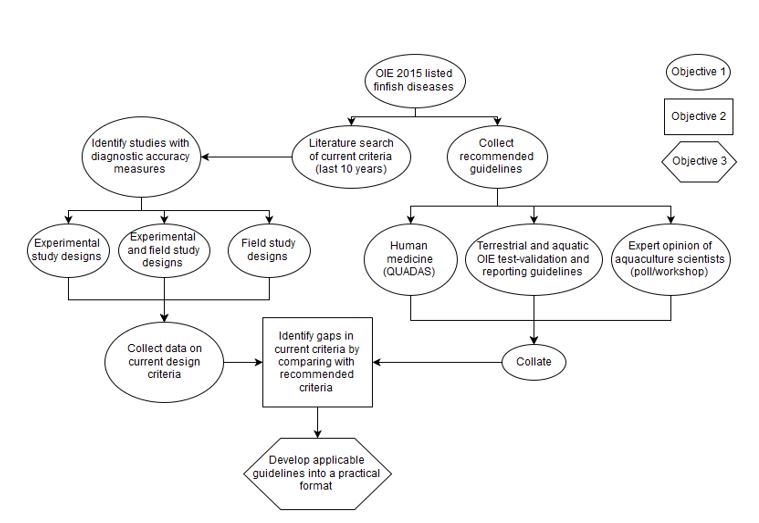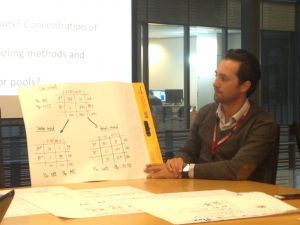Receiving the CERC Early Career Development Grant enabled me to participate in an expert-panel workshop in Canberra, Australia (March 29-30, 2016) and fulfil one of the objectives of our Design Standards Project (see figure below).
The goal of this project is to modify current evaluation criteria for diagnostic-accuracy studies from human medicine to make them relevant to animal health, particularly aquaculture. In addition to a comprehensive literature search, the workshop discussions identified gaps and recommendations for design criteria of field and experimental studies with diagnostic purposes for infectious diseases of finfish, molluscs, crustaceans, and amphibians.
Participants in the workshop included Ian Gardner (CERC/AVC), Mark Crane (Australian Animal Health Lab, Geelong), Paul Hick (USydney, aquatic virology), Nick Moody (AAHL), Charles Caraguel (UAdelaide, aquatic epidemiology), and Ingo Ernst (President, OIE Aquatic Animal Health Commission).
Discussion of field study guidelines was spearheaded by Gardner, Laurin, and Caraguel, while Hick, Moody, and Crane directed experimental study discussion. Ernst hosted the workshop and provided international and Australian context. Time was also allocated for all participants to discuss another project with Gardner and Laurin, regarding standards for pooling methods. After completion of each groups’ further assigned work, a practical checklist of recommended design standards will be developed (peer-reviewed publication is expected by end of 2016) that could be endorsed by peer-reviewed journals and research centers. The proposed outcomes fit the overarching CERC goals by improving the quality of evidence-based study designs and reporting and by ensuring public confidence in the application of epidemiological research in aquaculture.


Charles Caraguel (UAdelaide, aquatic epidemiology) presenting at the workshop


